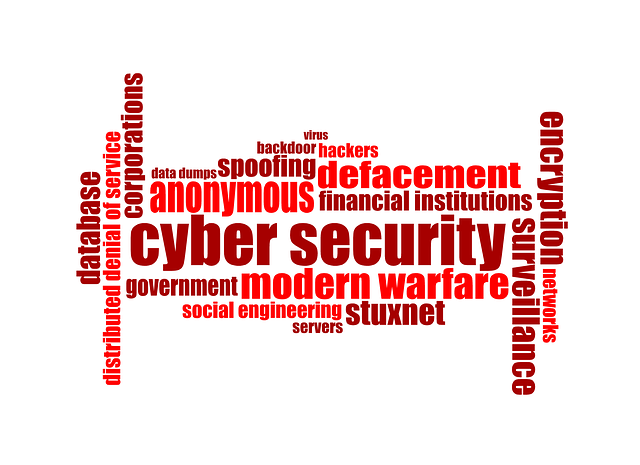Cybersecurity is an ever-evolving landscape, with new threats and challenges emerging as technology advances. Businesses, governments, and individuals are under increasing pressure to stay ahead of cybercriminals and protect their sensitive data. In 2024, several cybersecurity trends are set to dominate the industry. In this article, we’ll explore the top 5 cybersecurity trends that you need to watch to stay secure and resilient in the year ahead.
1. AI-Driven Cybersecurity: The Future of Automated Threat Detection
One of the biggest trends for 2024 is the increasing role of artificial intelligence (AI) and machine learning (ML) in cybersecurity. AI-driven solutions can analyze vast amounts of data in real-time, helping businesses detect and respond to threats faster than ever before.
AI-driven cybersecurity tools are capable of:
- Identifying Anomalies: By continuously monitoring user behavior and network traffic, AI tools can quickly identify unusual activity that could indicate a cyberattack.
- Automating Responses: Once a threat is detected, AI can automate responses to mitigate the risk, such as blocking IP addresses or isolating infected systems.
- Reducing False Positives: AI and ML algorithms can learn from past incidents, reducing the number of false positives and allowing security teams to focus on genuine threats.
As cyberattacks become more sophisticated, AI-powered solutions will become a cornerstone of modern cybersecurity strategies.
2. Zero Trust Architecture: Trust No One, Verify Everything
Zero Trust Architecture (ZTA) has been gaining traction over the past few years, and in 2024, it’s set to become a fundamental approach to cybersecurity. The core principle of Zero Trust is simple: trust no one, whether inside or outside the organization, and verify everything before granting access.
Key features of Zero Trust include:
- Continuous Verification: Instead of relying on perimeter security, Zero Trust continuously verifies users, devices, and applications, ensuring that only authorized users can access sensitive data.
- Microsegmentation: By dividing networks into smaller segments, Zero Trust minimizes the damage of a breach by limiting the attacker’s lateral movement.
- Least Privilege Access: Zero Trust ensures that users only have access to the data and systems they need to perform their jobs, reducing the risk of insider threats.
As more organizations adopt remote work and cloud-based services, Zero Trust will become essential for protecting distributed environments.
3. Ransomware Resilience: Preparing for the Worst
Ransomware continues to be one of the most devastating cyber threats, with attacks becoming more frequent and sophisticated. In 2024, organizations will need to focus not only on preventing ransomware attacks but also on building resilience in case they occur.
Key strategies for ransomware resilience include:
- Data Backups: Regularly backing up critical data ensures that organizations can quickly recover in the event of a ransomware attack without paying a ransom.
- Incident Response Plans: Having a well-defined incident response plan in place allows organizations to act swiftly and effectively in the aftermath of an attack.
- Employee Training: Many ransomware attacks start with phishing emails. By training employees to recognize phishing attempts, organizations can reduce their risk of falling victim to ransomware.
2024 will see an increased focus on ransomware readiness as businesses recognize that, despite their best efforts, breaches can still happen.
4. Cloud Security: Safeguarding the Digital Transformation
As more businesses migrate their operations to the cloud, cloud security will be a top priority in 2024. While cloud computing offers significant benefits in terms of scalability and efficiency, it also introduces new security challenges.
Key cloud security trends for 2024 include:
- Shared Responsibility: Organizations need to understand that cloud security is a shared responsibility between the cloud service provider (CSP) and the customer. While CSPs are responsible for securing the infrastructure, businesses must ensure that their data, applications, and access controls are properly secured.
- Secure Access Management: Implementing multi-factor authentication (MFA) and strict access controls can prevent unauthorized access to cloud resources.
- Encryption: Encrypting data both at rest and in transit is critical for protecting sensitive information in the cloud.
In 2024, businesses will need to prioritize securing their cloud environments to protect sensitive data and ensure compliance with industry regulations.
5. Cybersecurity Skills Gap: Addressing the Talent Shortage
The global cybersecurity skills shortage has been a major challenge for organizations over the past decade, and this trend is expected to continue into 2024. As the demand for skilled cybersecurity professionals increases, businesses will need to find innovative ways to bridge the talent gap.
Strategies to address the cybersecurity skills gap include:
- Investing in Training and Development: Organizations can help close the skills gap by offering training programs to upskill their existing workforce in cybersecurity best practices.
- Outsourcing Security Services: Many businesses are turning to Managed Security Service Providers (MSSPs) like NyuWay to handle their cybersecurity needs, ensuring continuous protection without the need for in-house experts.
- Leveraging Automation: Automating routine security tasks with AI-driven tools can reduce the workload on cybersecurity teams, allowing them to focus on more complex issues.
Addressing the skills gap will be critical to maintaining a robust cybersecurity posture in the face of evolving threats.
How NyuWay Can Help You Stay Ahead of Cybersecurity Trends
At NyuWay, we understand the challenges that businesses face in staying ahead of the latest cybersecurity trends. Our Penetration Testing as a Service (PTaaS) and Managed Security Services are designed to help organizations strengthen their security posture, protect sensitive data, and ensure compliance with industry regulations.
Our solutions offer:
- Continuous Vulnerability Testing: Stay ahead of threats with automated, real-time security testing.
- Advanced AI/ML-Driven Threat Detection: Identify and respond to threats faster with AI-powered solutions.
- Compliance Support: Meet the latest industry regulations, including GDPR, PCI DSS, and more.
Ready to protect your business from cyber threats in 2024? Contact NyuWay today to learn more about how we can help you implement the latest cybersecurity solutions and stay secure in the face of evolving threats.
